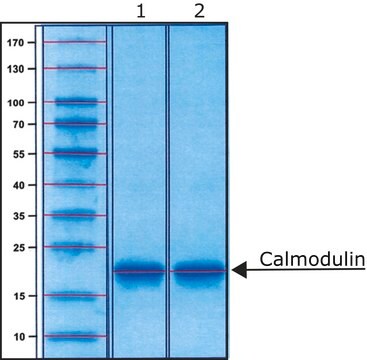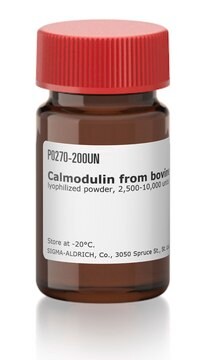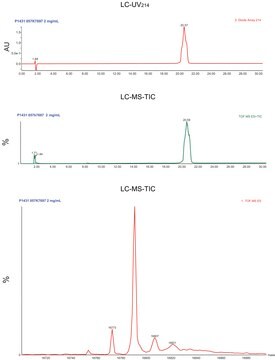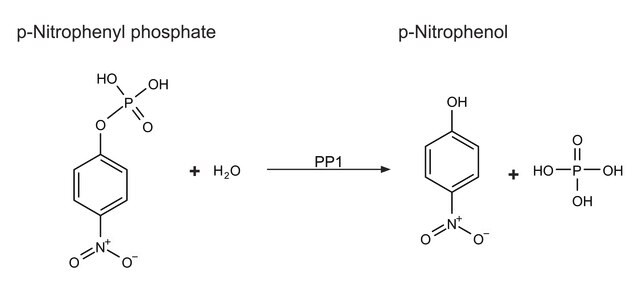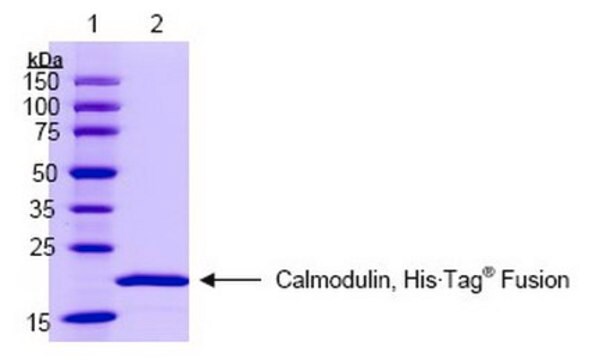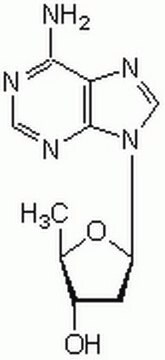208783
Calmodulin, Porcine Brain
Calmodulin, Porcine Brain, is a ubiquitous Ca2+-binding protein that serves as a physiological effector of a wide range of biological processes. Purified from porcine brain.
Iniciar sesiónpara Ver la Fijación de precios por contrato y de la organización
About This Item
UNSPSC Code:
12352202
NACRES:
NA.77
Productos recomendados
Quality Level
assay
>98% (SDS-PAGE)
form
lyophilized
specific activity
≥35,000 units/mg protein
manufacturer/tradename
Calbiochem®
storage condition
OK to freeze
avoid repeated freeze/thaw cycles
solubility
water: 1 mg/mL
shipped in
wet ice
storage temp.
−20°C
General description
Calmodulin (CaM) purified from porcine brain. A ubiquitous, calcium-binding protein that interacts with and regulates a wide variety of proteins, thus affecting different cellular functions and calcium-calmodulin-dependent signaling pathways. CaM mediates processes like inflammation, metabolism, apoptosis, muscle contraction, intracellular movement, short-term and long-term memory, nerve growth, and the immune response. Useful for applications requiring active pure calmodulin.
Warning
Toxicity: Standard Handling (A)
Unit Definition
One unit is defined as the amount of calmodulin that will stimulate 0.01 unit of 3′5′-cyclic nucleotide phosphodiesterase to 50% of the maximum activity of the enzyme when saturated with CaM in the presence of 100 µM Ca2+ in a 3 ml reaction volume at 30°C, pH 7.5.
Physical form
Lyophilized from 10 mM sodium phosphate buffer, 5% sucrose, pH 7.0.
Reconstitution
Following reconstitution, aliquot and freeze (-20°C). Stock solutions are stable for up to 6 months at -20°C.
Other Notes
Massom, L., et al. 1990. Biochemistry29, 671.
Legal Information
CALBIOCHEM is a registered trademark of Merck KGaA, Darmstadt, Germany
Storage Class
11 - Combustible Solids
wgk_germany
WGK 1
Certificados de análisis (COA)
Busque Certificados de análisis (COA) introduciendo el número de lote del producto. Los números de lote se encuentran en la etiqueta del producto después de las palabras «Lot» o «Batch»
¿Ya tiene este producto?
Encuentre la documentación para los productos que ha comprado recientemente en la Biblioteca de documentos.
Nuestro equipo de científicos tiene experiencia en todas las áreas de investigación: Ciencias de la vida, Ciencia de los materiales, Síntesis química, Cromatografía, Analítica y muchas otras.
Póngase en contacto con el Servicio técnico